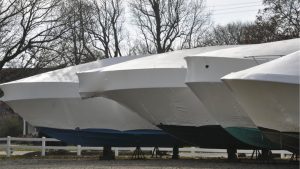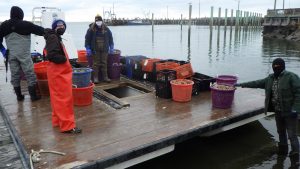Search results for: VIPREG betwinner promo code free bet 202 Kyrgyzstan
Science and Economics in the Management of an Invasive Species
Science and Economics in the Management of an Invasive Species Hoagland, P. and D. Jin BioScience, Vol. 56, No. 11, pp. 931-935, 2006 WHOI-R-06-007
Read MoreFalmouth Participates in Cape-wide Boat Shrink Wrap Recycling Program
This spring, the town of Falmouth will be accepting boat shrink wrap plastic at the town’s waste management facility as part of a recycling program run by WHOI Sea Grant and Barnstable County’ Cape Cod Cooperative Extension in partnership with municipalities across the Cape and Cape Cod AmeriCorps. Falmouth joins the towns of Bourne, Dennis,…
Read MoreMultiple Genetic Stocks of Longfin Squid Loligo pealeii in the NW Atlantic: Stocks Segregate Inshore in Summer, but Aggregate Offshore in Winter
Multiple Genetic Stocks of Longfin Squid Loligo pealeii in the NW Atlantic: Stocks Segregate Inshore in Summer, but Aggregate Offshore in Winter Buresch, K.C., G. Gerlach, and R.T. Hanlon Marine Ecology Progress Series, Vol. 310, pp. 263-270, 2006 WHOI-R-06-002
Read MoreStorms, Erosion, Flooding
Storms, Erosion, Flooding Seventy-five percent of the population of Massachusetts lives in coastal counties and our coasts provide an even greater number of people a wide range of economic, social, and recreational opportunities. Competing uses of our coastline can result in conflicts between the protection of waterfront upland property and the preservation of the beneficial…
Read MoreState of Wellfleet Harbor Conference Planned
The annual State of Wellfleet Harbor Conference opens this Saturday, November 6 from 10-11:15 a.m., the first of three live Saturday webinars this month. The conference is free and all are welcome. Woods Hole Sea Grant Fisheries and Aquaculture Specialist Abigail Archer is a moderator for the conference. This Saturday, Owen Nichols with the Center…
Read MoreOn the Optimal Environmental Liability Limit for Marine Oil Transport
On the Optimal Environmental Liability Limit for Marine Oil Transport Jin, D. and H.L. Kite-Powell Transportation Research Part E, Elsevier Science Ltd., Vol. 35, pp. 77-100, 1999 WHOI-R-99-001 Recent changes in the U.S. liability regime for oil pollution damage have intensified a policy debate about environmental liability limits. This paper focuses specifically on tanker shipping…
Read MoreWHOI-R-05-004 Bernhard, A. E. Loss of Divers
WHOI-R-05-004 Bernhard, A. E. Loss of Divers
Read MoreBivalve Mollusc Hatcheries: A Critical Appraisal of their Development and a Review of their Potential Value in Enhancing the Fisheries of Developing Nations
Bivalve Mollusc Hatcheries: A Critical Appraisal of their Development and a Review of their Potential Value in Enhancing the Fisheries of Developing Nations Mann, R. Memorias de la Asociation Latinoamerica de Acuicultura, A.L.A., Vol. 5, pp. 97-105, 1983 WHOI-R-83-023 This paper reviews the historical development of marine bivalve mollusc culture and emphasizes hatchery development. A…
Read MoreSheherbina, A.Y. A Coastal Current in Winter-2
Sheherbina, A.Y. A Coastal Current in Winter-2
Read More1998-2000 Projects
Molecular Biomarkers of Chemical Sensitivity Mark E. Hahn and Brenda A. Jensen, Woods Hole Oceanographic Institution A group of chemical contaminants known as PHAHs, or planar halogenated aromatic hydrocarbons, are persistent in the marine environment. Some of these contaminants accumulate in the blubber and other tissues of marine mammals. As a result, certain cetaceans and…
Read More

